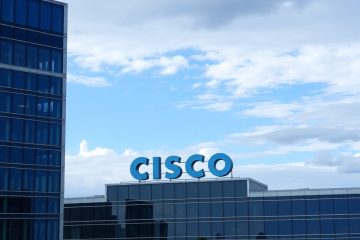AI-Picked Undervalued Stock of the Day: Kroger (KR) Deep Dive

AI-Picked Undervalued Stock: Kroger (KR) Deep Dive – Fundamental & Technical Analysis, Ownership Insights & Expert Ratings
In the dynamic world of stock investing, leveraging artificial intelligence (AI) to identify undervalued stocks can provide a significant advantage. Today, we’ll conduct an in-depth analysis of Kroger Co. (KR), an AI-selected undervalued stock from the S&P 500. Our exploration will encompass fundamental and technical analyses, ownership structure, and analyst ratings, providing a comprehensive understanding of Kroger’s current market position.
Kroger Co. (KR): An Overview
Kroger is one of the largest supermarket chains in the U.S., operating thousands of grocery and retail stores. As a major player in the consumer staples sector, Kroger provides essential goods, making it a resilient investment during economic downturns. Despite its stable business model, Kroger’s stock remains undervalued relative to its earnings potential, offering an opportunity for value investors.
Fundamental Analysis
Fundamental analysis assesses a company’s intrinsic value by examining financial statements, industry position, and economic factors. Key metrics for Kroger include:
- Earnings Per Share (EPS): EPS indicates the portion of a company’s profit allocated to each outstanding share, reflecting profitability. Kroger reported an EPS of $4.30 in 2024, with analysts projecting a 5% increase in 2025.
- Price-to-Earnings (P/E) Ratio: The P/E ratio compares a company’s current share price to its per-share earnings. Kroger’s P/E ratio is approximately 10.5, well below the S&P 500 average, signaling undervaluation.
- Dividend Yield: This metric shows how much a company pays out in dividends each year relative to its stock price, indicating potential income for investors. Kroger’s dividend yield stands at 2.3%, making it an attractive choice for dividend-seeking investors.
- Revenue Growth: Revenue growth measures the increase or decrease in a company’s sales over time, reflecting its ability to expand. Analysts project 3.8% revenue growth in 2025, supported by continued expansion in online grocery and private-label products.
Technical Analysis
Technical analysis evaluates stock price movements and trading volumes to forecast future price trends. For Kroger:
- Moving Averages: The 50-day moving average for Kroger is $63.78. With the current stock price at $68.14, Kroger is trading above this level, indicating bullish momentum.
- Relative Strength Index (RSI): The 14-day RSI for Kroger is 61.06, suggesting neutral momentum—neither overbought nor oversold.
- Support and Resistance Levels:
- Support: A support zone ranges from $64.09 to $65.79, formed by multiple trend lines and moving averages.
- Resistance: A resistance zone is identified between $67.70 and $67.72, also established by multiple trend lines.
As of April 1, 2025, Kroger’s stock is trading at $68.14.
Kroger’s Competitive Position & Investment Sentiments
Kroger continues to solidify its market presence through several strategic initiatives:
- Private-Label Expansion: Kroger’s private-label brands, such as Simple Truth and Private Selection, have gained significant traction, contributing to revenue growth and higher profit margins.
- Digital & E-commerce Growth: The company has been expanding its online grocery services and delivery options, competing with Amazon and Walmart in the digital grocery space.
- Strategic Acquisitions: Kroger has made acquisitions to enhance its supply chain and distribution network, boosting operational efficiency.
- Cost-Saving Initiatives: The company is investing in AI-driven inventory management and automation to reduce costs and improve margins.
Investment Sentiments:
- Bullish Perspective: Some analysts believe Kroger’s strong fundamentals, dividend yield, and cost-cutting initiatives make it an attractive long-term investment.
- Bearish Perspective: Skeptics argue that the competitive landscape in grocery retail is fierce, with pressures from Walmart, Amazon, and discount retailers squeezing margins.
- Neutral Perspective: Many investors are waiting for clearer signs of sustained growth in e-commerce and cost reductions before making a long-term commitment.
Ownership Structure & Institutional Investments
Understanding who holds a company’s shares provides insights into its stability and market perception. Kroger’s ownership breakdown is as follows:
- Institutional Investors: Approximately 80% of Kroger’s shares are held by institutional investors, indicating strong professional confidence in the company’s prospects. Notable institutions increasing their stake in 2025 include:
- Vanguard Group – Increased holdings by 2.8% to approximately 110 million shares.
- BlackRock Inc. – Added 3.1% more Kroger shares, now holding around 95 million shares.
- State Street Corporation – Raised its stake by 1.5%, totaling 75 million shares.
- Insider Ownership: Insiders, including executives and board members, hold about 0.3% of the shares, aligning management’s interests with those of shareholders.
- Retail Investors (General Public): The general public holds approximately 19.7% of Kroger’s shares. This substantial participation can influence stock volatility.
High institutional ownership often brings stability and strategic guidance, while insider ownership aligns management’s interests with shareholders. Retail investor participation can add liquidity but may also introduce volatility.
Analyst Ratings
Analyst ratings synthesize professional evaluations of a stock’s expected performance. For Kroger:
- MarketBeat: Recent analyst ratings show a consensus rating of “Buy” with an average price target of $54.00, suggesting potential for price appreciation.
- MarketWatch: The average recommendation is “Hold” with an average target price of $50.12.
- Yahoo Finance: Analyst estimates and forecasts provide insights into earnings and revenue expectations.
Overall, of the 30 analysts covering Kroger, 18 recommend buying, 10 have neutral ratings, and 2 suggest selling.
Conclusion
Kroger Co. presents a compelling case as an undervalued stock within the Consumer Staples sector. With a strong dividend yield, steady revenue growth, and significant institutional backing, it remains an attractive option for long-term investors. Technical indicators such as moving averages and RSI suggest cautious optimism. Investors should conduct thorough due diligence, considering individual financial goals and risk tolerance, before making investment decisions regarding Kroger.
Want more AI-driven finance tips? Subscribe to our blog and stay ahead of the game!
Disclaimer: This blog article is for informational purposes only and should not be considered financial advice. Everyone’s financial situation is unique. Always consult with a qualified financial advisor or planner to assess your individual circumstances before making financial decisions



0 Comments